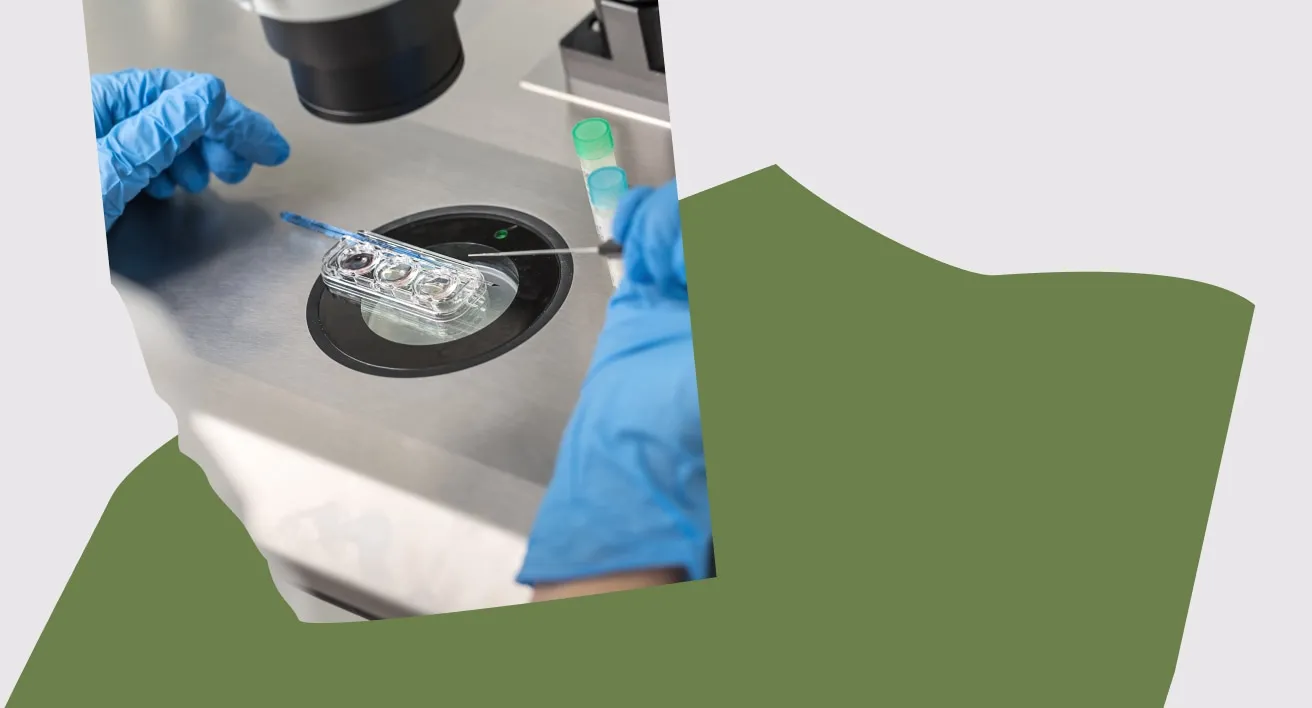The truth about IVF success rates

When you’re starting your IVF journey, choosing where to have treatment can be overwhelming. There are so many clinics to choose from, and it can be daunting to sort through statistics and Yelp reviews to find the best for you! There are many things to consider when picking a clinic, and we are here to help you get started.
3 questions to ask yourself when looking at IVF success rates
If you’ve already started your research, you’ll know that it’s very common for IVF clinics to have their success rates front and center on their website. Although the numbers may seem impressive, they’re not always as clear-cut as they could be. Here are three questions to ask yourself each time you come across success rates online:
What does success mean?
When it comes to IVF treatment, “success rate” doesn’t have a universal definition, so it’s open to interpretation. This means that individual clinics can publish and cite whichever metric gives them the best success rate.
For example, one clinic might calculate its success rates with the number of children who are born, while another will base its numbers on how many women became pregnant. Another clinic might use the number of embryo transfers that have been done at their clinic, while another might look at how many egg retrievals have been done instead. This makes it really challenging to compare clinic outcomes side by side.
How have the success rates been calculated?
In many cases, you’ll find some clinics claiming that their success rates are higher than the national averages published by the CDC, SART (Society for Assisted Reproductive Technology), or the ASRM (American Society for Reproductive Medicine). This is likely the case because clinics will base their calculations on the small number of patients they treat each year, compared to the millions of patients taken into account in reports of national averages.
How are the success rates presented?
You might have noticed that many clinics group their success rates into two wide age ranges. It’s likely that clinics do this because calculating averages across a larger age range can produce higher success rates.
Age is an extremely important factor in working out your personal success rate, so although this approach can make a clinic’s success rates seem impressive, they don’t tell you very little about your individual chances of IVF working for you.
Where to find the facts
For best-in-class information, look at data from the CDC’s Assisted Reproductive Technology (ART) reporting. The CDC works directly with the American Society for Reproductive Medicine and the Society for Assisted Reproductive Technology to collect, present, and share the latest data on fertility treatment outcomes.
The CDC’s data on fertility treatment is well organized and can help you meaningfully compare local clinic results against each other, plus how those clinics’ results compare to national averages.
Consider all factors before choosing a clinic
Although having access to accurate data can help you choose the right fertility clinic for you, individual success rates are just one factor to consider.
Data from the past few years shows that IVF success rates have improved across the board, suggesting that advances in science and technology are playing a much bigger part in success rates than any individual clinic.
All of that said, there’s more to treatment than success rates. Going through IVF is a very personal, emotional and lengthy experience, and it’s important to feel like you’re in the right place throughout your treatment. Because you’ll be spending a lot of time together during treatment, you’ll want to choose a clinic with a staff that makes you feel welcome, comfortable, and valued.
The bottom line
Clinics define success rates differently, and there’s no one metric to define success. For the best nationwide data, review the CDC’s reporting. Last, success rates aren’t the only factor to consider when you’re choosing a clinic — it’s important to find a clinic where you feel comfortable.






